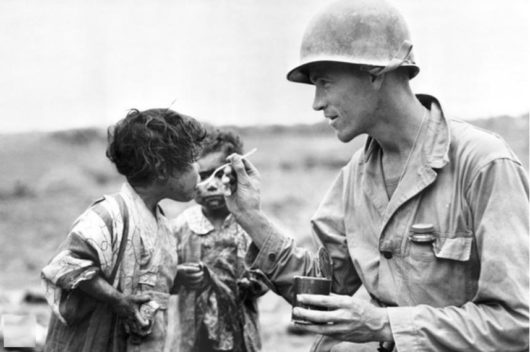Today, an energetic debate is underway over the character and definition of greatness. We witness this debate being played out in foreign and economic policy, in judicial ruling, social media postings, and statements from Atheists to Zionists. In the midst of this debate, some are angry, jubilant, and almost everyone concerned.
For perspective, debate over the measure of greatness is nothing new. Europe in the 1930 was consumed with similar questions: Is greatness defined by military power? Is it measured by kindness and compassion? Is greatness a virtue to determined by justice? Justice on whose terms?
The aftermath of the European debate is unmistakable. 50-80 million people died (roughly the population of the UK), including some 20 million civilians, like you and I, from starvation. Least our debate today degenerate into similar catastrophe, shall we pause for a moment of perspective from the only person in history to return to life after being killed? Do you recall Jesus Christ’s measure of greatness?
Jesus and his disciples traveled to Capernaum, as recorded in Mark 9:33-37. At the house, He asked them, “What were you discussing on the way?” But they were silent, for on the way they had been arguing with each other which of them was the greatest. Sitting down, Jesus called the Twelve and said, “If anyone wants to be first, he must be the last of all and the servant of all.” Then He had a little child stand among them. Taking the child in His arms, He said to them, “Whoever welcomes one of these little children in My name welcomes Me, and whoever welcomes Me welcomes not only Me, but the One who sent Me.”
For today’s debate, what are the implications of this measure of greatness?

